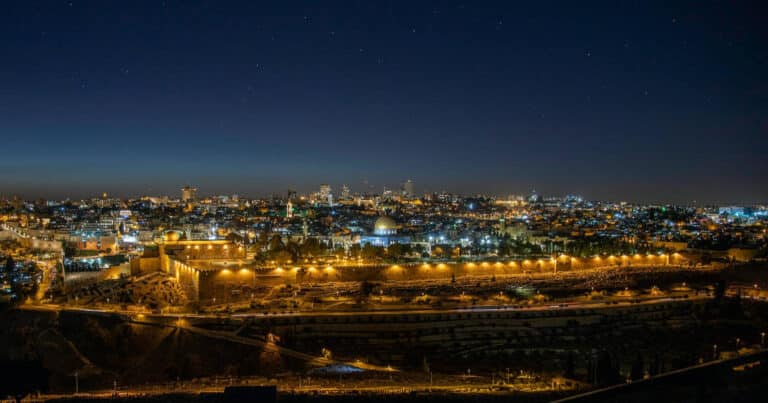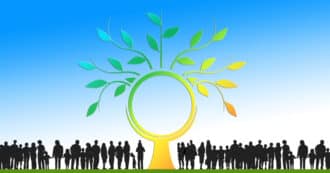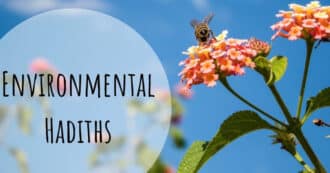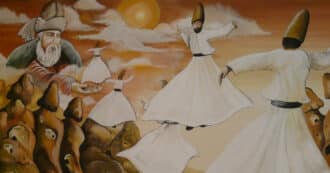By Caroline Stern
Last week in Jerusalem, men and women from diverse backgrounds came together at the Second Annual Interfaith Eco Poetry Slam to share their hearts and minds on how faith relates to the global ecological crisis. The event was organized by the Interfaith Center for Sustainable Development, and a variety of themes were expressed through the flow and staccato of poem and song. Some topics included the role of faith in saving the planet, achieving peace in the Middle East, honoring gender equality, and actually taking action to improve the environment, not just talking about it. In addition to the spoken-word, musical performances speaking about being one with the earth and acting now to save the environment created a feeling of community to the packed Tmol Shilshom Café. The message was clear: regardless of our individual faiths, we are all on this planet and need to do something about our problem together.
One of the German Christian poets, Leander Löwe posed a number of important questions, challenging the audience to ask themselves: If we only had twenty-four hours left to save the planet would all of our thoughts and ideas suddenly turn to action? Would our lack of worry turn into a collective 180 degree shift? Would the world decide to put down their guns and help one another? Would we change our behavior? Can God help us? Can we help God? Leander ended optimistically stating that we could and we will come together to fix this problem. Yet, only if everyday we act as if it is our last chance to save the earth. And in some ways, that is the case.
As this event showed, an important aspect of interfaith work is physically bringing together those of different religious backgrounds. The Interfaith Eco Poetry Slam was a catalyst––a means of moving toward our goal of creating an open dialogue about our planet’s environmental issues. The event challenged us to tear down the boundaries society has forced us to create.
Robin Levy, a Jewish performer, described her desire to break down stereotypes between cultures around the world, and encouraged the audience to do so as well, by passionately telling the crowd to “make me master of my own fate,” and not to let others dictate who we are. She stood tall and projected to the room her belief in not being seen through only one lens or culture.
No matter its beliefs, all religions communicate the importance of fundamental respect for planet Earth, our common home. We are one with the soil and ground beneath our feet; it is a living entity that needs our care and attention if we want it to treat us with respect as well. Yet, each religion saying it alone is not enough. The only way to accomplish a sustainable world is to work together as
one community––regardless of background––and give back to the planet that we say we care so much about. It is our responsibility to realize that all communities must act together to create real change, because not one people, not one religion, and not one culture can do this by itself. This is not a “them” vs. “us” problem. This is everyone’s problem––humanity’s problem.
Perhaps one way of achieving this is to create a larger community which transcends religious or political boundaries. Those who comprehend the idea of a purpose greater than his or her own self, including his or her own religious beliefs, also understands the necessity of working towards a larger community and goal. Changing our definition of community from individualistic priority to a sense of oneness with all humankind will create a society that will see the earth, the environment, and all life as equal.
Perhaps a simple, but powerful way of starting to create this global community is teaching a neighbor about recycling. Or collecting old clothes for donation. Or perhaps holding community meetings instructing people in how to live sustainably. As Eitan Press enthusiastically told the audience, the earth “keeps giving even though all we do is take.” The way to counter this is to start giving. Start giving back to the earth but also, start giving to your neighbors. Give them information. Give them inspiration. Give them knowledge about how to change. Let’s create a holistic view of the world so we can approach our environmental issues through helping not only ourselves but others too. Maybe then we can create a community that everyone can get behind no matter one’s background.
The interconnectedness between God, nature, and ourselves is highlighted in Nadav Slovin’s poem:
We praised God as one together apart
And one day, my dear friend, your song we will sing
Together all beings in peace and loving
But tonight may I request please a bit-different sound
The one which reveals that day without bound
Heard in ears of owls
From calm latent bowels
Of clustered crouched tree-trunks
Perched in deep fear
Whispering forth their prayer
God
Please bring the sun
God
Please
Please God
Won’t you please bring the sun
It is the cry that I seek from the hearts of the wicked
From the blamed and the shamed and the maimed turned insipid
Through our cry, truth overflows
In dependence and need our unity glows
So play me a song that will tear through our heart
Shatter my pain my protective walls apart
Our weakness transformed into shimmering prayer
In union we’ll cry with the bee and the bear
Yes, we need God’s help. But God needs our help to save the creatures and earth that are all connected to us. Will God answer our prayers to help us save the planet? Only if we actively show Him we––as one community––care enough to do something about it.
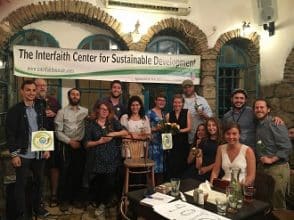
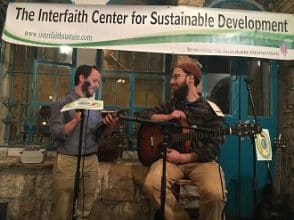
* Featured image source

